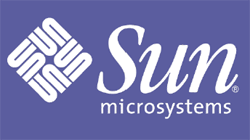Topics :-
- Physical View of MPU & MCU
- Moore’s Law
- Key Features Of MPU & MCU
- Bridge between College and Real Life Scenario-Work Of Intel Engineer
- Latest in MPU & MCU
- Leading Companies In MPU
Physical View of MPU & MCU:
Historical Background

- Fairchild Semiconductors founded in 1957, invented the first IC in 1959.
- In 1968, Robert Noyce, Gordan Moore, Andrew Grove resigned from Fairchild Semiconductors.
- Found their own company Intel (Integrated Electronics).
- Intel grows from 3 man start-up in 1968 to industrial giant by 1981.
- It had 82,500 employees (2010) and $53.34 Billion revenue(2012).
Timeline:
- 1947-Invention Of Transistor
- 1959-Invention Of Integrated Circuit
- 1965-Birth Of Moore’s Law
- 1971-Development of First Microprocessor-4004
- 1971-Development of First Microcontroller-TMS1000
- 2011 May 2, , Intel announced its first 22 nm microprocessor, codenamed Ivy Bridge, using a technology called 3-D Tri-Gate
Gorden Moore’s Law
”The number of transistors on integrated circuits will double approximately every 24 months.”
So what changes do they do actually?
Bring in Advanced Micro-architecture technology which puts in more and more no. of transistors on a unit sized chip
Key Features Of MPU & MCU:
- Smaller Size
- Lower Cost
- Higher Reliability
- Lower Power Consumption-CMOS
- Higher Versatility
- More Powerful
Bridge between College and Real Life Scenario-Work Of Intel Engineer
What do these Engineers do?[1]
Process Engineers-develop the most efficient methods for semiconductor manufacturing using state-of-the-art equipment and materials
Yield Engineers– work closely with process engineers to improve product yield and to troubleshoot process flow from root causes to equipment tuning
Equipment Engineers– own and lead the stability, improvement, maintenance and performance functions of extremely advanced tools
Design Automation and Computer Aided Design (CAD) Engineers– design, develop, maintain, and provide user support of CAD tools, assist with schematic entry and analysis in the integrated circuit design process, and create and implement computer-controlled automatic test systems. In all of these tasks, their core objectives are simple—to improve quality and reduce costs
Hardware and Software
Product Development- ensuring the testability and manufacturability of integrated circuits, optimizing component production, and evaluating, developing and debugging complex test methods. Working with our process technology development and product teams, these individuals help deliver the best process and design effective reliability models based on ROI, process limitations, Q&R requirements and product usage models
Component Design and Validation– responsible for chip layout, circuit design, circuit checking, device evaluation, and validation. Starting with product requirements and logic diagrams, they plan design projects and help address the unique needs of our customers
Research and Development– Explore how customers interact with technology, what they love about it, and how to make off-the-wall ideas usable reality. Whether you’re applying new materials, emerging technologies or customer insights, your innovations will be what transforms the computing capabilities of tomorrow.
Latest in MPU & MCU:
What the hell is the difference between these i3 i5 and i7 Processors???
| I3 | I5 | I7 |
| Cores-2(dual) 3-4 MB Cache 2.93 to 3.06 GHz Clock Speed | Cores2(dual)/4(Quard)Threads-2/4 4/(6-8) MB Cache 3.2 to 3.6/2.4 to 2.6 GHz Clock Speed | Cores-4(quard)8 MB Cache3.06 to 3.2 GHz Clock Speed |
| Threads-4 | Threads 2/4 | Threads-8 |
| Hyperthreading-Yes | Hyperthreading-Yes/No | Hyperthreading-Yes |
| Turbo Boost-No | Turbo Boost-Yes/Yes | Turbo Boost-Yes |
| 32 nm technology | 32/45 nm technology | 32-45 nm technology |
Meaning Of Pratik has 64-Bit Laptop???
- It means the Microprocessor has 64 data bus lines.
- So if you have 32 bit Microprocessor, then it means that there are 32 data lines .
Meaning of 256 MB Memory
256 =2^8
So there are in total 8 address lines
Leading Companies In MPU:

INTEL
- Integrated Electronics founded in 1968
- Paul Otellini –CEO
- Headquarter-Santa Clara ,California
- Intel has also begun research in electrical transmission and generation
- It has 23,000 employers
- Intel has recently introduced a 3-D transistor that improves performance and energy efficiency.
- Intel has begun mass producing this 3-D transistor, named the Tri-Gate transistor, with their 22 nm process, which is currently used in their 3rd generation core processors initially released on April 29, 2012
Others:
 |
||
| |
 |
THIS BLOG claims no credit for any images posted on this site unless otherwise noted. Images on this blog are copyright to its respectful owners. If there is an image appearing on this blog that belongs to you and do not wish for it appear on this site, please E-mail with a link to said image and it will be promptly removed.
